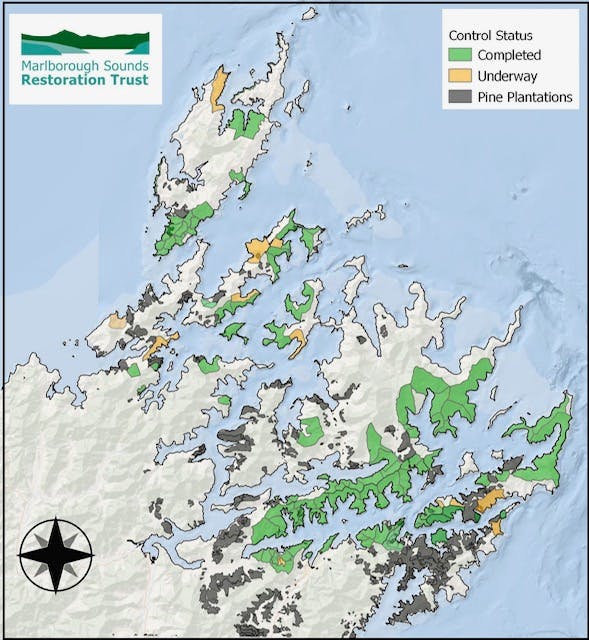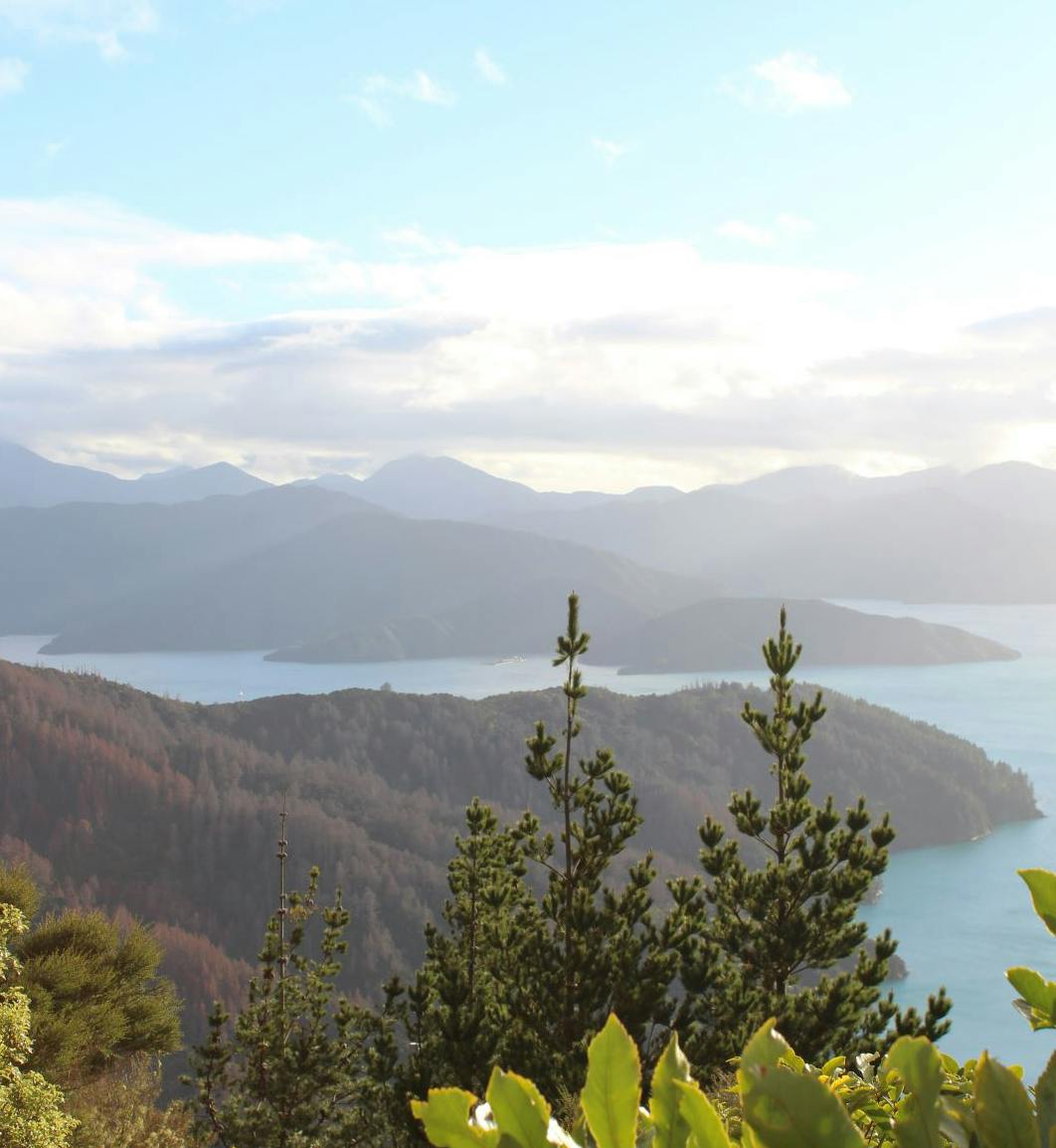After more than two decades of wilding pine eradication in the Marlborough Sounds, the greatest success has been more than environmental. It’s the sense of community, collaboration, and shared purpose that has grown along the way, says Marlborough Sounds Restoration Trust chair, John Hellstrom.
Reflecting on the Trust’s remarkable journey since its formation in 2003, John says more than $5 million has been raised and invested in wilding pine control – a third of it contributed by local landowners, businesses, and community members.
“That’s an incredible achievement, especially for a small town like Picton,” he says. “Over the years we’ve earned trust through solid results and low overheads. The trust is governed by volunteers, with only one very part-time paid role, and that gives people the reassurance that nearly every dollar goes directly into the work.”








